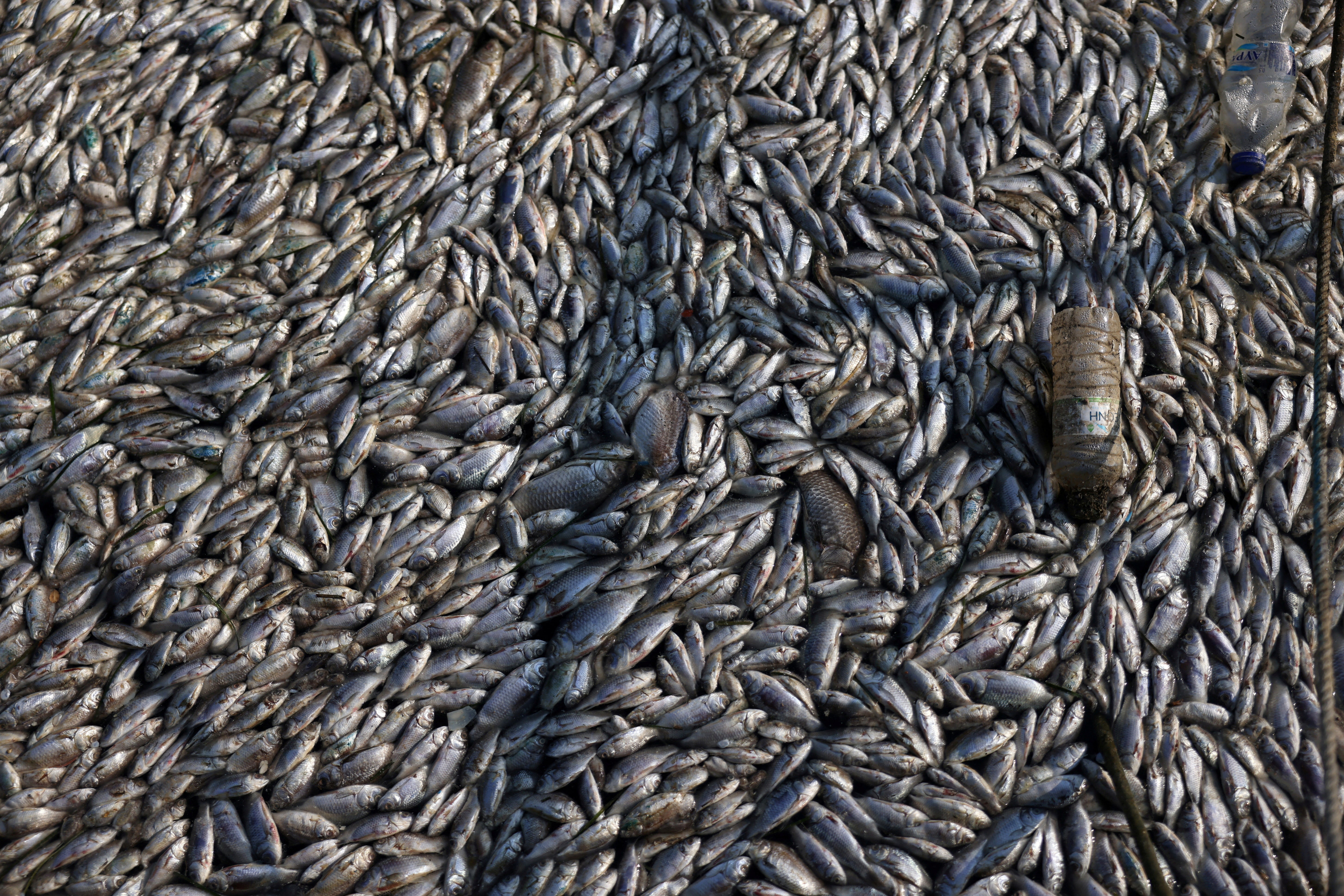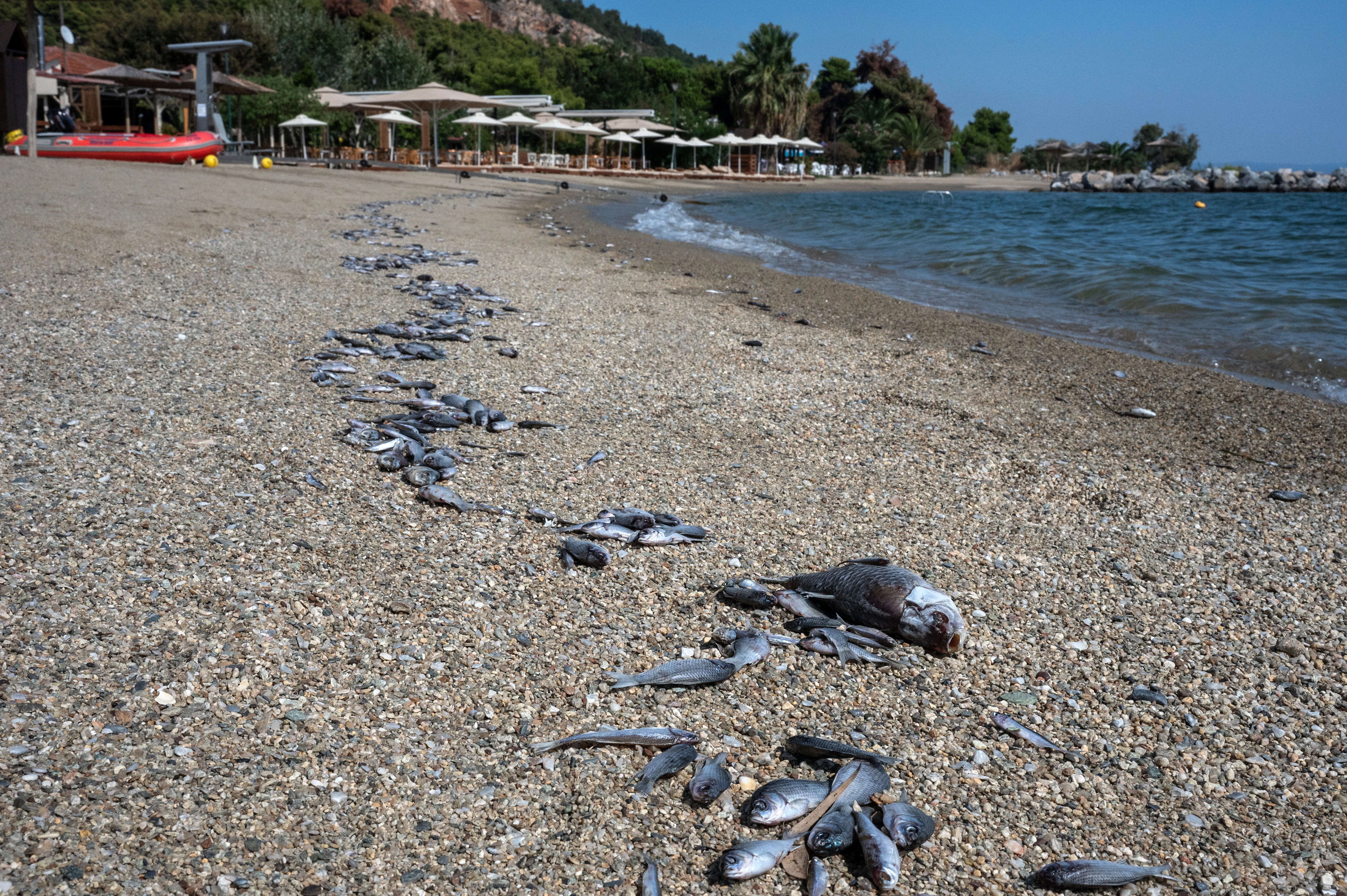A blanket of dead fish has covered the sea at a popular Greek tourist hotspot.
The floating carcasses across the port left a stench that alarmed residents and authorities who raced to scoop them up before the odour reached nearby restaurants and hotels.
Authorities have started collecting hundreds of thousands of dead fish that poured into a tourist port in the central city of Volos this week after being displaced from their usual freshwater habitats during flooding.
“It spans kilometers,” city council member Stelios Limnios told Reuters. “It’s not just along the coast, but also in the center of the Pagasetic Gulf,” he said, referring to the area offshore Volos whose coast is lined with holiday homes.
On Wednesday, trawlers dragged nets to collect the fish that were then dumped in the back of trucks. More than 40 tonnes have been collected in the last 24 hours, authorities said.

Volos mayor Achilleas Beos said the smell was unbearable. During a press conference on Wednesday he blamed the government for not dealing with the problem before it reached his city. He said that rotting fish could create an environmental disaster for other species in the area.
Experts said the problem was caused by historic floods last year that inundated Thessaly plane further north, including rivers and lakes. A net was not placed at the mouth of the river leading into Volos, they said. When the fish met the sea, the saltwater likely killed them.
“They didn’t do the obvious, to put a protective net,” mayor Beos said, referring to government services.
The environment ministry did not respond to a request for comment. Local prosecutors have ordered an investigation.

`Dimosthenis Bakoyiannis, 33, who owns a beach restaurant 10 km (6 miles) from Volos, says his turnover dropped 80% this summer as fewer tourists wanted to visit after the flooding.
“Closing the barrier now doesn’t help,” he said. “Now it’s too late, the tourist season is over.”
The disaster is the latest impact of extreme weather in Greece that scientists link to climate change, including higher temperatures and erratic rainfall that cause wildfires and flooding.
Wildfires, made more intense and frequent by hotter, drier weather linked to climate change, also threaten the tourism industry. A massive blaze earlier this month came within miles of the capital Athens.
Last year, more than 8,000 forest fires raged across the country, and thousands of tourists had to be evacuated from islands, including Rhodes.








